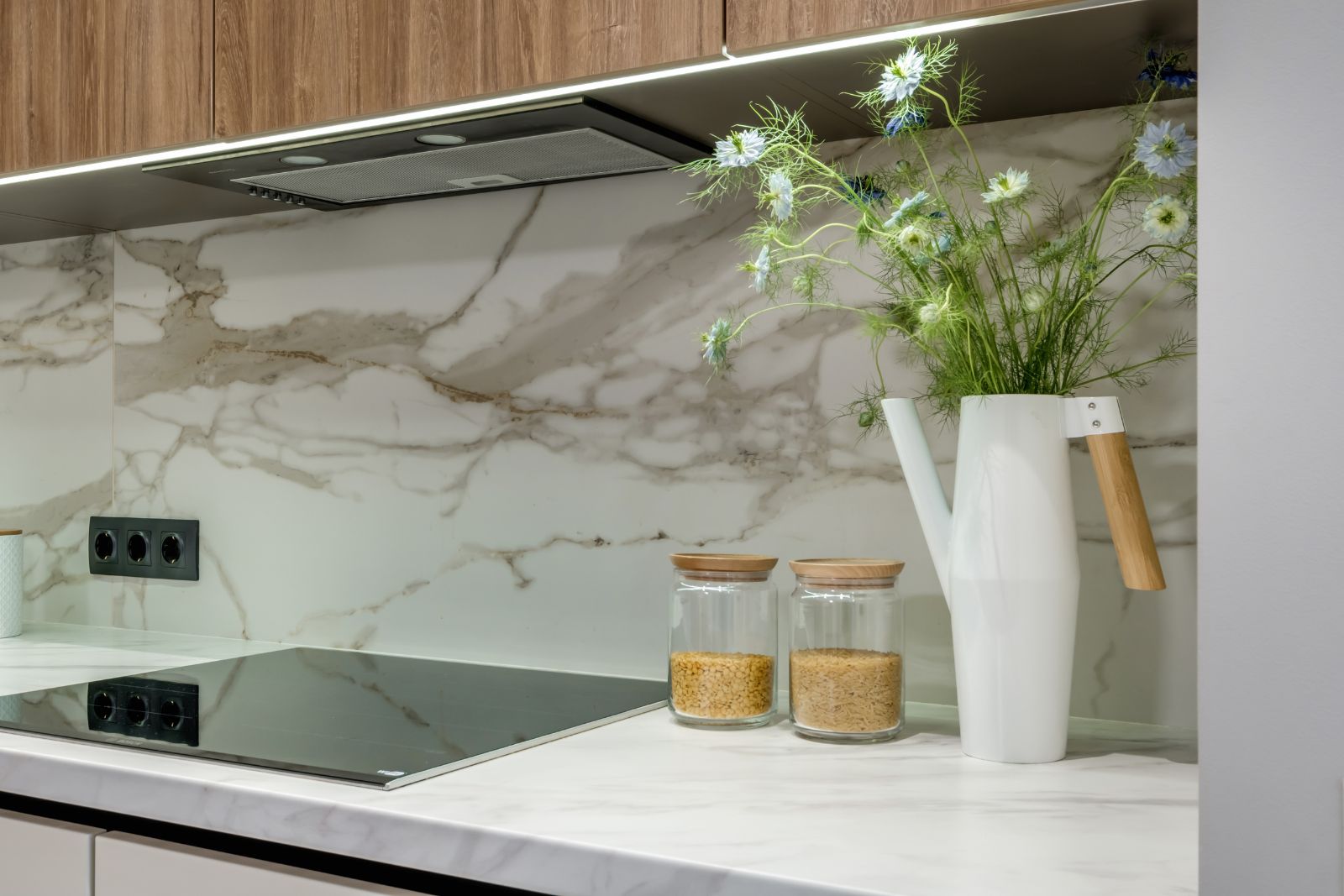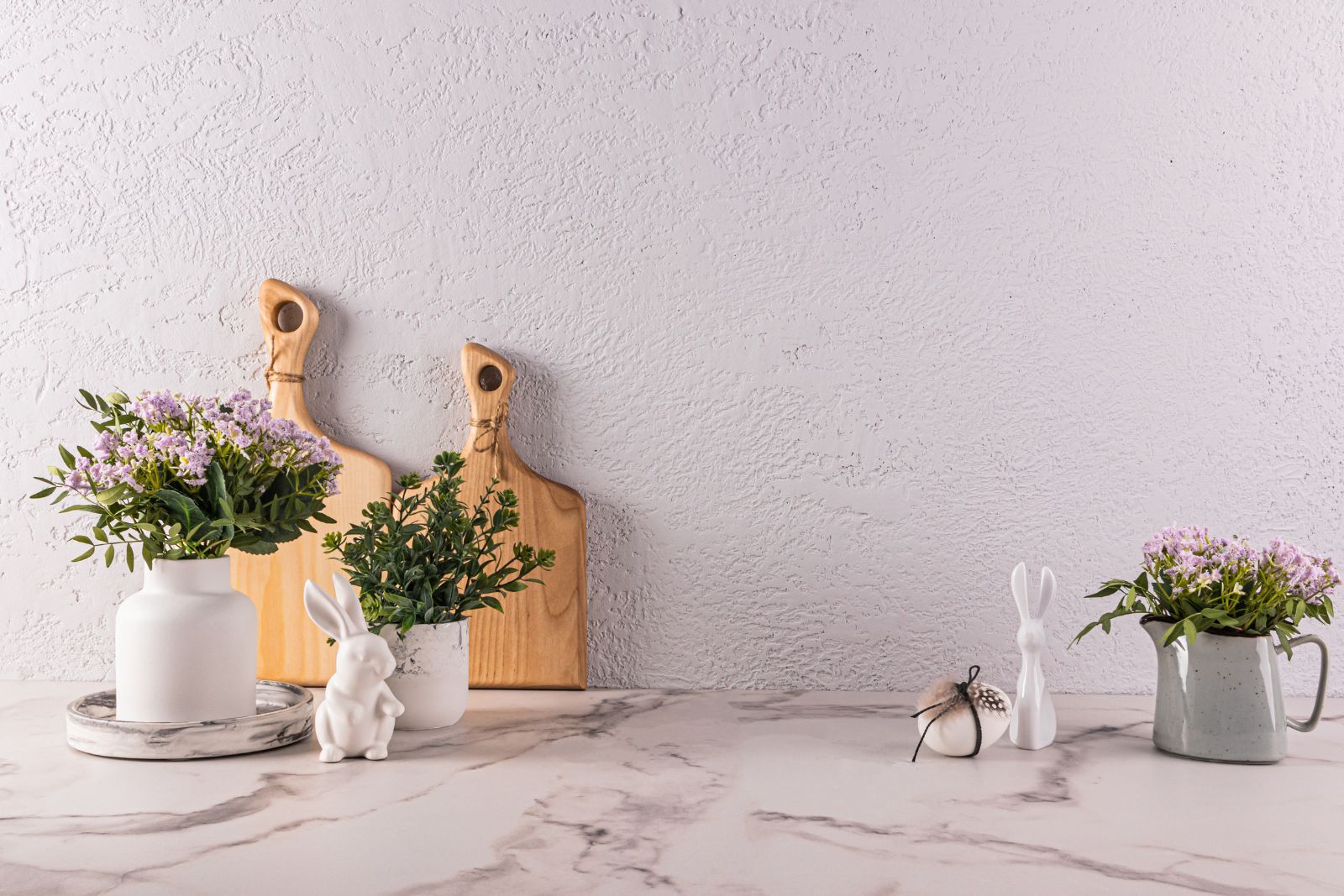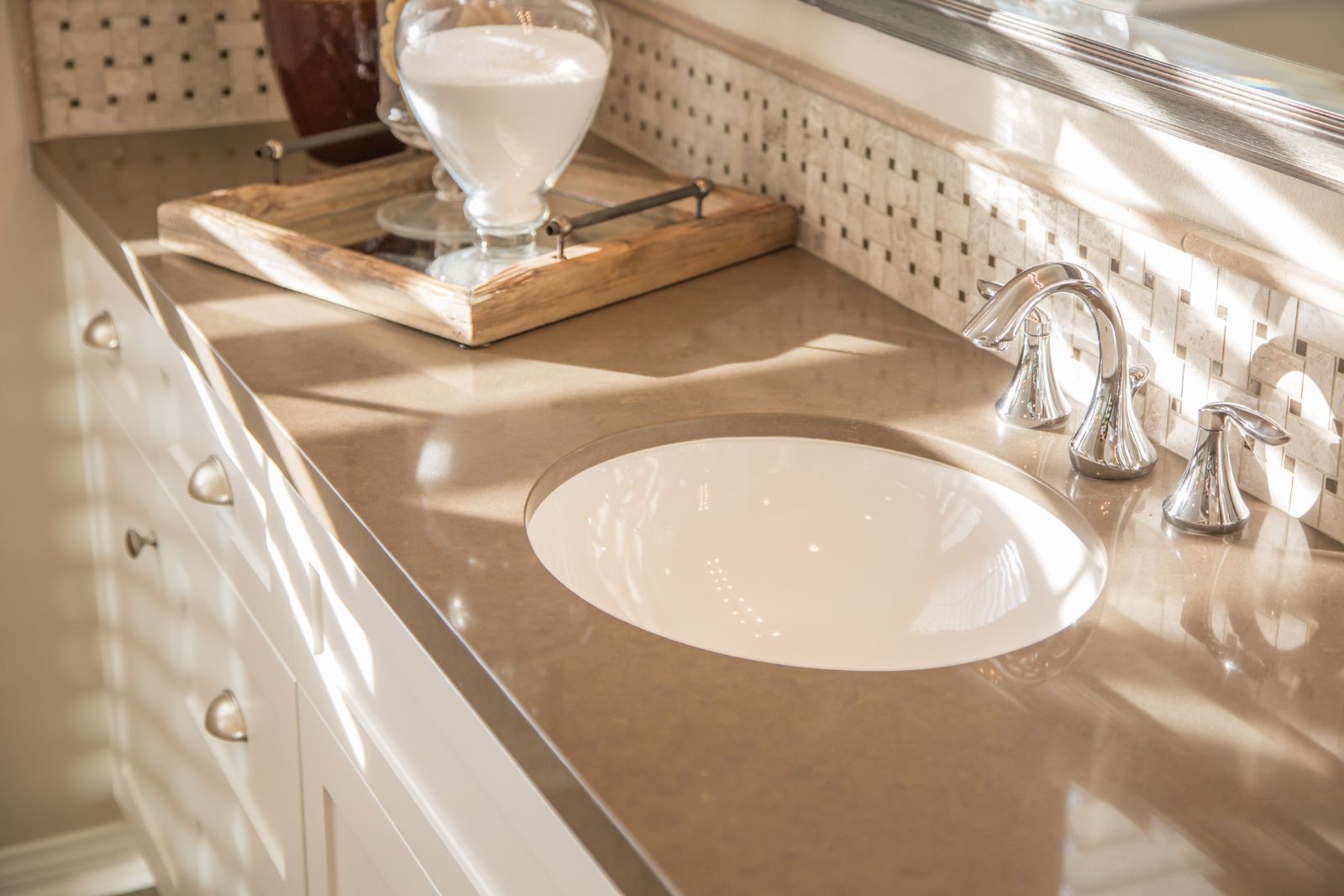While exploring different options for their new kitchen, many homeowners find themselves torn between popular stone materials such as marble or quartz. They are intrigued by the beautiful appearance and general longevity of stone worktops. But what many fail to consider are other, equally aesthetic and quality options. One of these underrated materials surely is porcelain – it offers as many benefits as quartz and can look as beautiful as marble. Luckily, we’re here to dive into porcelain worktops pros and cons to help you make the ultimate decision.
Read our ultimate guide below to discover the many benefits of porcelain worktops, and why they might be the right choice for your home.
Porcelain Worktops Pros and Cons

How Porcelain Worktops Are Made
Made from a mix of natural minerals, clay and feldspar, porcelain is a rising star in the world of stone worktop materials due to its durability and aesthetic.
The manufacturing process of porcelain slabs includes meticulous selection of raw materials, which are then blended in precise proportions. Then, the mixture is processed and then pressed in moulds, followed by firing in kilns at high temperatures (1200-1400 °C). The final product is an extremely durable and quality porcelain slab, which has a variety of uses in many areas of interior design.
Porcelain Worktops Pros

While many homeowners often consider installing quartz, marble or granite worktops, few are aware of the many advantages that porcelain worktops offer in comparison. Ranking high in both quality and design, porcelain worktops can be a great alternative to marble or another stone material you’re considering.
Porcelain Worktops Are Low-Maintenance
The most beautiful sentence an avid cook can hear, right? Naturally, one of the most important factors to consider for your worktops is how convenient they will be for your daily habits. Porcelain worktops are extremely low-maintenance, and do not require special products for cleaning – any spilled food or beverages can simply be wiped away by a wet washcloth. Porcelain worktops also don’t require sealing, unlike marble, and can save you the trouble of stressing about whether your surface is protected. All of these advantages are due to the fact that porcelain has a non-porous surface, which disables bacteria from penetrating into the crevices.
Porcelain Worktops are Heat Resistant
While quartz is often described as the sturdiest and most resistant material, it falls short in one category – heat resistance. It is proven that longer exposure to heat can damage the appearance of quartz worktops. Porcelain worktops, on the other hand, are proven to be extremely heat-resistant – perfect for a kitchen with hot pots and pans. This is due to the fact that porcelain is fabricated in high heat over 1000 °C, and can withstand hot temperatures ranging from 600 – 1000 °C.
Porcelain Worktops Can Last a Lifetime
When you’re in the process of investing in your worktops, one of the most important requirements is that your worktops will last you awhile. Luckily, investing in stone worktops is the best way to ensure the longevity of your kitchen worktops. Porcelain worktops are an excellent choice of a material, and will ensure that your kitchen is in a pristine condition for decades to come.
Porcelain Worktops Offer A Variety of Designs
The greatest advantage of manufactured stone materials such as porcelain or quartz is that their appearance can be altered during fabrication by adding different pigments. Whether you want to opt for a marble-look worktops or want to go all out on a striking colour, your local stone worktop specialist probably has the design for you!
Porcelain Worktops Don’t Have To Be Thick
If you’re considering stone worktops but dislike the thickness of some materials, porcelain is the way to go. Porcelain worktops are manufactured in such a way that enables much thinner slabs. The fabrication of porcelain slabs also allows them to have a bigger surface, which means that you can cover your entire kitchen island without any seams, guaranteeing a sleek and sophisticated look.
Porcelain Is Sustainable
Environmentally conscious homeowners will be glad to read that porcelain worktops have many environmental benefits. As mentioned before, porcelain slabs are made from raw materials and can therefore be recycled. Additionally, by installing a durable material such as porcelain, you are ensuring that your worktops won’t need to be frequently replaced, therefore ensuring an eco-friendly option for your home.
Porcelain Cons

Even though we believe that porcelain is an outstanding material for your worktops, it is wise to point attention toward possible downsides of porcelain.
Porcelain Worktops Can Be Pricey
As any stone worktop, installing porcelain worktops is certainly an investment. The good news is that porcelain is more affordable than other stone material options (such as marble or granite), while offering the same benefits. Therefore, if you’re seriously considering stone worktops for your kitchen or bathroom, porcelain can be one of the budget-friendlier options from the stone category.
Ceramic Knives Require Caution
Porcelain worktops offer great scratch resistance, but ceramic knives are their kryptonite. It is advised to avoid cutting with a ceramic knife directly on the surface, as not to damage the worktop. However, incorporating a simple habit of using cutting boards on porcelain worktops will ensure that your worktops remain in a pristine condition for a long time.
Frequently Asked Questions
Do porcelain worktops chip easily?
Are porcelain worktops stain resistant?
Are porcelain worktops expensive?
Conclusion
When analysing porcelain worktops pros and cons, it is clear that porcelain offers many advantages that will make your kitchen look stunning while ensuring practicality and durability. In case you’re curious about more details regarding this impressive material, contact a local stone worktop specialist and get a recommendation from a professional.

